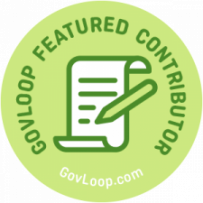When I work with new employees, their sense of dread about making mistakes is palpable. This sometimes leads to them volunteering for less challenging work, which steepens the learning curve and decreases their ability to engage in meaningful work.

That is the subject of a conversation I had with Megan, a student aide who was recently hired on permanently. She is a sharp, committed team player, and has a lot to offer. Her confidence as an employee is still developing. Here is a snippet of our coaching conversation:
The Coaching Conversation
“But what if I make a mistake?” she says as we look around for an empty table.
I can tell she wants me to tell her she won’t make a mistake. She wants to feel confident. She wants to feel worthy of her new role.
“Meg, don’t worry about it,” I say, deliberately pausing before I finish my full statement. “You will definitely make a mistake.”
She looks at me incredulously. “What?”
“You will make a mistake,” I said. “You will be wrong. You will not always perform to your standards or those of others.” I let her sit with that a bit.
“I know it is cold comfort,” I add. “But in the end, it is best to believe that you will not always be successful. Sometimes, you will make decisions that seem good at the time, only to find out later that they weren’t.”
Her shoulders drop as she stares at her coffee, deflated and perplexed. Why would I say something like that?
“Well,” she says, “What do I do when I make a mistake?” She looks at me eagerly.
I explain to her the 4 R’s of mistake management, and we walk through an example together. She sent the wrong version of a weekly report to the entire division, and she felt awful. Here’s how that conversation went:
1. Recognize the Mistake
“OK. Umm. Let’s see. Recognize. I am recognizing now that I made a mistake,” she says. “I mean, I realized when I got a message from a supervisor that I sent the wrong one. So, I did step 1!”
“OK. What else?” she asks.
I nod.
2. Reflect on the Mistake
“Reflect! I am guessing that means to think about what happened?” Meg says. She looks at me for confirmation, and I nod.
“I was in a hurry because it was near the deadline, and I had just finished that last bit because I had to change some content based on an email I had just received from Jack about the Stella Project. I sent it out in time, but I attached the wrong one,” she laughs nervously. She still feels embarrassed about it.
I smile, nod and encourage her to continue.
3. Rectify the Mistake
“Rectify. Hmm. What do you mean by that?” she asks.
“Could you do anything to fix it?” I respond.
“Yes, and I did it immediately!” she exclaims, feeling relieved. “I sent a new email with the correct document.”
“Great!” I comment and smile, encouraging her to continue.
4. Remember the Mistake
“Remember. That is pretty self-explanatory,” she says confidently, realizing that she has already employed this method intuitively. “I will remember now to double-check attachments and use a better naming convention next time.”
“Exactly!” I commend.
We head back to the office, and I remind her not to get stuck in reflection because that can lead to regret. I also remind her that some mistakes will be more difficult to navigate, and perhaps there won’t be a way to rectify them. But I add that she should still walk herself all the way through the process.
“I know it is easier said than done, but try not to regret too much,” I say. “That is wasted energy. Remember the lesson it taught you, and focus your energy on doing good work. Mistakes are inevitable, but they don’t define you. But they can distract you if you don’t put them into perspective and move on.”
We move to part ways at the elevator bank, and I leave her with one more encouraging remark.
“Go forth and do great things!” I say.
Interested in becoming a Featured Contributor? Email topics you’re interested in covering for GovLoop to featuredcontributors@govloop.com. And to read more from our Spring 2021 Cohort, here is a full list of every Featured Contributor during this cohort.
Nefertiti is a Supervisory Life Scientist for the Environmental Protection Agency (EPA). She is passionate about employee engagement, mentoring and helping people and groups achieve their goals. Her leadership mantra is, “Prioritize people. Simplify processes. Celebrate progress.”
In her free time, she enjoys reading, drawing and writing. Nefertiti is the mother of a curious and compassionate seven-year-old, with whom she enjoys rediscovering the world.





This was a great read! Very relatable and I love the example. Thanks for posting!